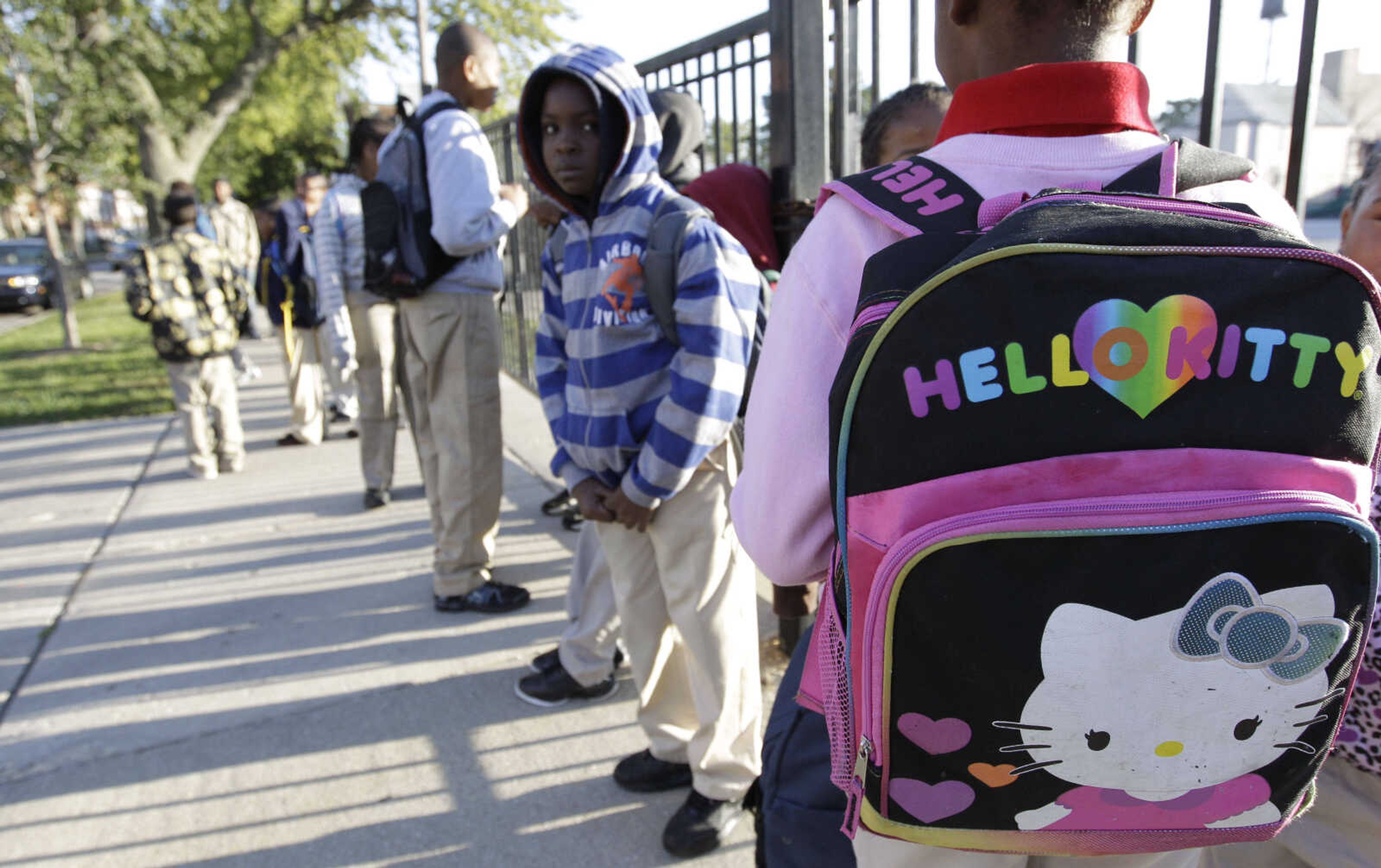Chicago students return to class as strike ends
CHICAGO (AP) -- Chicago children returned to school Wednesday, less than a day after teachers ended a seven-day strike that disrupted the daily routines of thousands of families and made the city a flashpoint in the debate over union rights and efforts to overhaul the nation's public education system...
CHICAGO -- Mayor Rahm Emanuel secured an extension of Chicago's school day and empowered principals to hire the teachers they want. Teachers were able to soften a new evaluation process and win some job protections.
As students returned to the classroom Wednesday following a seven-day teachers strike, both sides found reasons to celebrate victory. But for all the rhetoric, the wider effects of the walkout were difficult to gauge, and experts said the walkout might not resonate far beyond Chicago, a union-built city where organized labor still wields considerable power.
"I think a lot of what went on to a certain extent is peculiar to Chicago," said Martin Malin, director of the Institute for Law and the Workplace at the Kent College of Law in Chicago.
A report that characterized the relationship between the teachers union and Emanuel as "toxic" was on point, Malin said. Now that a deal has been reached, the challenge for both parties "is to seize that and work on rally transforming the relationship."
Everyone involved in the dispute emerged with an achievement to trumpet: Teachers said the strike sparked an important national conversation about school reform. Union activists said it provided inspiration for public employee unions that have lost ground nationally. And Emanuel declared it a boon for students trapped in failing schools.
American Federation of Teachers President Randi Weingarten said the strike showed that teachers want a voice in improving schools rather than shouldering the blame for those that are failing.
"The bottom line is ... you had teachers standing up for what they need to teach and what students need to learn," Weingarten
said.
But in lots of other places, the circumstances that led to Chicago's walkout don't apply. For one thing, many states forbid strikes by teachers and other public-employee unions, Malin said.
Thomas Hatch, a professor at Columbia University's Teachers College, said the strike focused attention on new teacher evaluations and fears of closing neighborhood schools. But he agreed that some factors, such as the personalities involved, are unlikely to affect other districts.
Meanwhile, more than 350,000 Chicago children returned to classes, restoring the routines of families whose daily lives were upended when youngsters suddenly had nowhere to go during the day.
Iquasai Carpenter, a home health care worker with two children in elementary school, said her kids did homework packets at home during the strike.
"They missed school. They missed their teachers. They missed their friends," she said as she dropped them off for class.
She sympathized with teachers and said they deserved pay raises. She didn't like the idea of the new evaluations that take student test scores into account, but she was glad the union negotiated down what percentage would be factored in. If students don't progress, she said, it isn't always the teachers' fault.
The nation's last big-city teachers strike was Detroit in 2006. Chicago had not seen teachers walk out since 1987.
"It's been a really long time since a major urban district went on strike," said Christine Campbell, a policy director at the University of Washington's Center on Reinventing Public Education. "Everyone's paying attention to try and get some lessons out of
it."
She said the improvements will make the mayor look good in the long run and demonstrated that unions still have relevance.
She wasn't sure, though, that such a strike could be replicated in other cities, something she attributed to the local figures involved and their leadership.
"The personalities are spiciest in Chicago right now," she said.
------
Associated Press Writer Jason Keyser contributed to this report.
Connect with the Southeast Missourian Newsroom:
For corrections to this story or other insights for the editor, click here. To submit a letter to the editor, click here. To learn about the Southeast Missourian’s AI Policy, click here.









